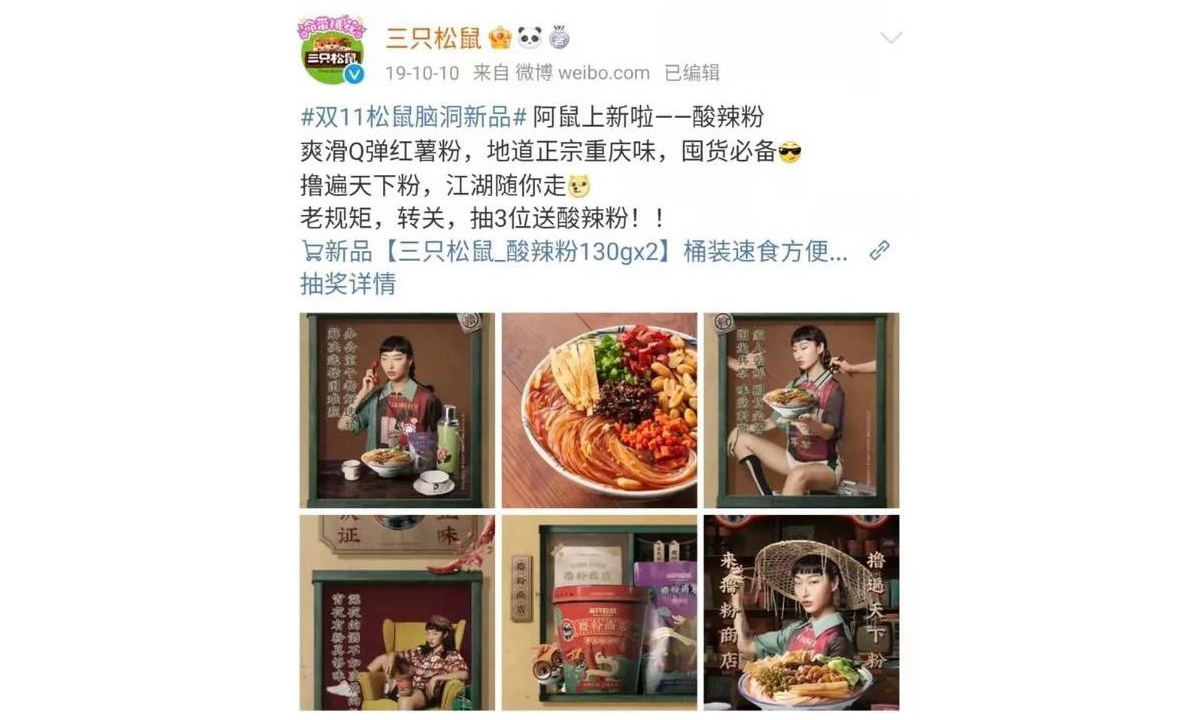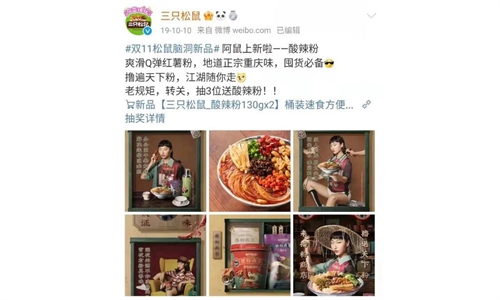
A screenshot from the Three Squirrels Weibo account
Chinese snack maker Three Squirrels apologized on Monday after the disclosure of a commercial poster using the red scarf, the symbol of Chinese Young Pioneers, for marketing purposes three years ago.
"The company immediately established a working group to conduct self-examination and self-correction concerning our advertising, official website, product packaging, and other content based on similar issues that people discussed recently," the company said in a statement.
After investigation, the company has removed related pages and products on April 1, 2019, and strengthened internal compliance audit and employee training and promotion, Three Squirrels said.
According to the poster recently shared by some social media users, a young Chinese pioneer wearing the red scarf is seen holding a packet of the company's nuts, accompanied with a slogan which translates to "the nuts could enhance the youth's brain power" under the picture, according to a report by the Red Star News, a news platform run by newspaper Chengdu Economic Daily, on Sunday.
The red scarf is a neckerchief worn by the Chinese Young Pioneers. The red triangle scarf represents a corner of the red flag and symbolizes the country's revolutionary tradition.
According to relevant rules, the Chinese Young Pioneer's flag, emblem and red scarf shall not be used in commercial advertisements. Given this, Three Squirrels' poster was detected for violating the rules and could be subject to penalties, lawyers said.
The poster disclosure followed the controversy surrounding one of its ads using the derogatory slanted-eye Asian women, which drew broad criticism on Chinese social media since the topic became a hot search item on December 28.
Chinese social media users were irked by Three Squirrels that uses a model with slanted eyes for "humiliating Chinese people", saying that it uses an image that feeds into a stereotypical Western image of Chinese people. However, the model later responded to the backlash, saying those who equate slanted or small eyes with "insulting China" are discriminating against her appearance, sparking a fresh wave of debate.
On Tuesday, the People's Daily commented on the case, saying narrow eyes have become a special issue. "We should be aware of what is insulting China, while also recognizing how the issues around slanted eyes can confuse domestic public opinion."
Global Times


